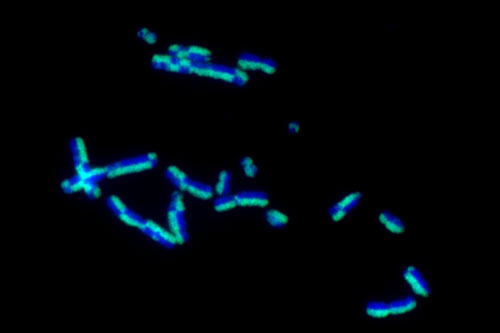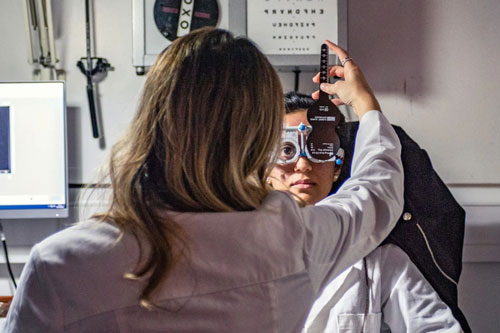Overview
ECLIPSE was a five-year international research programme led by Keele University and funded by the UK’s National Institute for Health and Care Research (NIHR), designed to transform our understanding of the challenges faced by people with cutaneous leishmaniasis (CL) – a neglected tropical disease affecting up to one million people each year.
Despite its global prevalence (an estimated 1 million new cases per year), CL is underreported, under-researched, and neglected in health policy agendas. Its painful skin lesions and permanent scarring may result in significant psychological distress, stigma, and social exclusion, particularly in low-income and conflict-affected regions.
Working in Brazil, Ethiopia, and Sri Lanka, ECLIPSE brought together international researchers, policymakers, and over 4,000 community members to address these challenges. The programme was the first large-scale, cross-cultural study of CL’s social, psychological, and structural impact. Together, the team co-produced interventions, influenced national policy, contributed to setting up new diagnostic and treatment centres, and improved public awareness of the disease, setting a new benchmark for community-led global health research.
The Challenge
Cutaneous leishmaniasis is estimated to affect over a million people annually but is rarely prioritised in global health discussions. The disease’s impacts go far beyond physical symptoms: patients often face stigma, discrimination, and exclusion, especially in rural and conflict-affected areas.
With only around 200,000 cases formally recorded each year, CL remains significantly underreported. ECLIPSE was the first major international programme to explore the complex, lived experience by people with CL across different cultural settings, and to design community-based interventions to improve patient journey and reduce stigma in a scalable way.
Partnerships
ECLIPSE was built on deep, cross-sector collaboration. Co-led by a parasitologist (Prof Helen Price at Keele University) and an anthropologist (Prof Lisa Dikomitis, now at University of Warwick), together with partners at Federal University of Bahia, Brazil, Mekelle University, Ethiopia and Rajarata University of Sri Lanka. The team included experts in social sciences, public health, clinical medicine, parasitology, psychology, arts and media communication and had a cohort of early-career researchers in each country.
Key partners included:
- ECLIPSE Policy Network – A cross-country platform connecting health policymakers from Brazil, Ethiopia, and Sri Lanka to promote shared learning and improve national CL strategies.
- Community stakeholders – Over 4,000 community members participated in shaping and co-producing interventions using arts, education, and participatory methods.
- Regional and national health authorities – Ministries of Health, hospitals, regional health bureaus and public health systems helped embed sustainable changes into existing infrastructure.
- ABRAPLEISH (Brazil) – A national patient support group for leishmaniasis, reactivated with support from ECLIPSE to strengthen advocacy and patient engagement.
The NIHR recognised ECLIPSE as a best-practice example of meaningful community engagement in global health research.
Research
ECLIPSE produced one of the most comprehensive, cross-cultural evidence bases on CL to date. The research combined ethnography, arts and qualitative and quantitative research methods to examine the psychosocial impacts of CL and to guide practical community-based interventions.
Key aspects to research, included:
- Ethnographic studies – In-depth fieldwork across three continents documented the lived experiences of CL patients in diverse settings.
- Public knowledge surveys – Baseline and follow-up assessments revealed dramatic improvements in awareness; in Tigray, Ethiopia, knowledge that CL is transmitted by sandflies rose from 1% to 36%.
- Co-produced interventions – Arts-based campaigns, training packages, and public education programmes were piloted, implemented and evaluated in all three partner countries.
- Health systems analysis – Research informed the decentralisation of CL care in Tigray, Ethiopia and expansion of CL diagnostics in Sri Lanka.
- Capacity building – ECLIPSE trained healthcare workers and mentored early-career researchers, embedding long-term sustainability into its legacy.
The programme concluded in 2024, having exceeded its research and impact goals.
Impact
Ethiopia
In the conflict-affected Tigray region, where CL was poorly understood and treatment inaccessible, ECLIPSE brought transformative change:
- Work with the Tigrayan Regional Health Bureau led to establishment of multiple new outpatient centres and a 20-bed inpatient unit for severe CL cases in Mekelle.
- Trained doctors, technicians, and community health workers to improve diagnosis and treatment.
- Public awareness of CL rose sharply in the region, with knowledge of its transmission increasing more than 35 percentage points.
- Recognised by regional and national health leaders for meaningful impact on policy and practice.
Brazil
In rural Bahia, ECLIPSE focused on empowerment, media, and infrastructure:
- Co-produced films like Orobó e o Cinema Delas, giving a platform to women living in marginalised rural communities.
- Raised profile of study sites led to the construction of a new road and a long-awaited primary healthcare centre in Orobó.
- Reactivated ABRAPLEISH and trained healthcare professionals across Bahia to strengthen early diagnosis and treatment access.
- Education materials are now being distributed across Brazil in partnership with the Ministry of Health.
Sri Lanka
ECLIPSE played a major role in reshaping CL policy and care delivery:
- Reached over 1.18 million people through theatre, TV, animations, and school-led performances.
- Helped integrate CL diagnostics into Sri Lanka’s healthcare system; detection rates doubled in the Anuradhapura district in 2024.
- Supported the rollout of diagnostic services in all 22 subdivisions of North Central Province and trained health professionals across multiple sectors.
- Community knowledge of CL increased more than eleven-fold in the study site, supporting better prevention and treatment-seeking behaviour.
Legacy
ECLIPSE leaves behind a powerful legacy of community-embedded, data-driven global health research. Key outcomes include:
- Policy influence – Informed regional and national strategies in all three countries through sustained engagement.
- Improved access – Brought diagnostics, treatment, and information to underserved communities.
- Reduced stigma – Worked towards shifting public perceptions through culturally sensitive, co-produced media and resources.
- Sustainability – Embedded training, infrastructure, and governance support that will outlast the programme.
- Global recognition – Cited by NIHR as a model for inclusive research and community engagement in global health.
Through ECLIPSE, research has become a driver of meaningful, lasting change for communities affected by one of the world’s most overlooked diseases.




